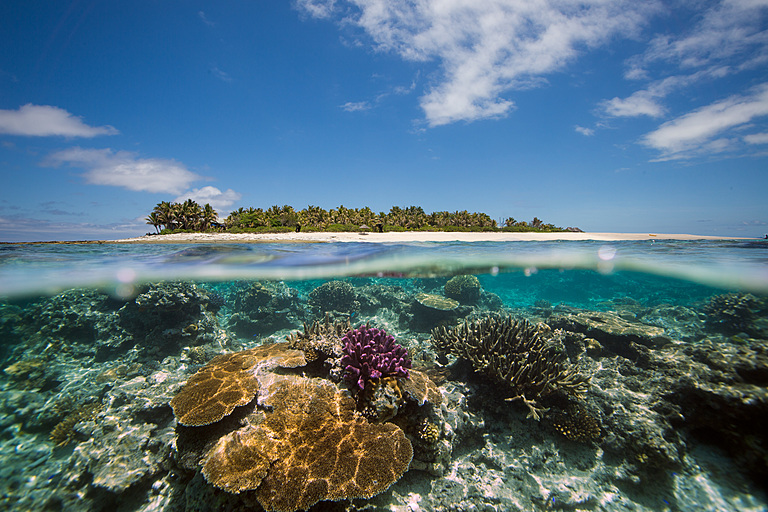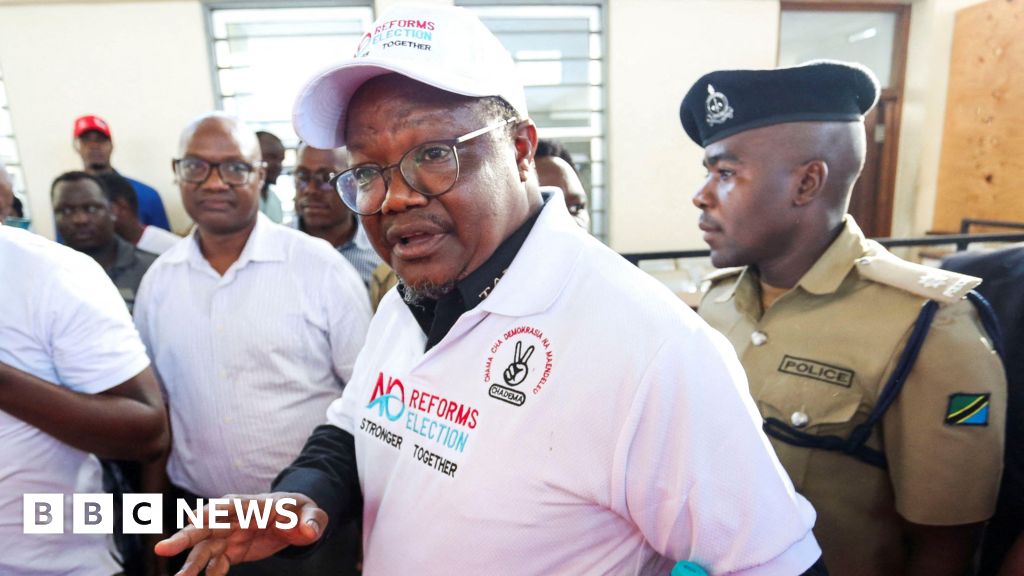Scientist with a Passion for Ocean Protection Elected IPBES Chair — Global Issues
SAINT LUCIA, Oct 10 (IPS) – The Intergovernmental Science-Policy Platform on Biodiversity and Ecosystem Services (IPBES) recently elected David Obura as Chair. The coral reef expert will serve a 3-year term that he hopes will underscore the need for science-led decision-making.David Obura always knew that his life’s work would involve the natural world. As a child with a love of nature, he always knew he would become an ecologist. Growing up in Nairobi, Kenya, he recalls fondly that his mother would take the family camping at national parks. With these excursions came opportunities for hiking, mountain climbing, and exploration. The family events also took him to one of the earth’s greatest wonders – the sea.
Two years of schooling on the west coast of Canada and a foray into scuba diving led Obura to begin making the connection between the sea and biology. It also led to a life-long career studying coral reefs and co-founding CORDIO East Africa, a non-profit organization that conducts research, monitoring, and capacity building for corals and other marine life in mainland Africa and the Indian Ocean.
Obura’s expertise and interest in peoples’ livelihoods from nature led him to make contributions to major international environmental assessments by scientific organizations like the Intergovernmental Science-Policy Platform on Biodiversity and Ecosystem Services (IPBES).
Since 2012, IPBES has been bringing together leading biodiversity scientists, experts and knowledge-holders, producing reports that provide evidence and options for action on vital issues such as pollination and food production, land degradation and restoration, the sustainable use of wild species, and most recently, invasive alien species.
In early September 2023, Obura, who has been part of three IPBES assessments, made the move from the science and research side of the body to the policy side when he became IPBES’ first Chair from the African continent.
IPS spoke to Obura about the shift, the dual crisis of biodiversity and climate change, as well as his hopes for his three-year term.
==================
IPS: You’re wearing a new hat – IPBES Chair. How have things changed?
Obura: The reason I was attracted to doing assessments is because we are hoping that they will help provide solutions that stakeholders, governments and other actors are looking for, to understand how to act sustainably and how to build sustainable practices into what they do.
So, I have always been on that side of the aisle, scientists trying to bring a positive influence on policy. In some ways that can be very frustrating because all we can do is present the evidence, but it is really up to the policy and decision makers to choose what to do based on that information and other information that they have.
Often other things have a higher importance in their minds than science does, but we are trying to change that.
IPS: As Chair of IPBES, what are some of the areas that you would like to see receive urgent attention?
Obura: When the opportunity to run for the Chair of IPBES came up, it was a surprise because I had not planned to stand, particularly as I have always been on the research side of things. I came to understand, however, through discussion with colleagues, that in the informal rotation of Chairs at IPBES, which is still a very young organisation, Africa and Eastern Europe had not yet held that position. There was a really strong case for a good African candidate and there were many countries involved. There was also a desire for someone with a strong science background, like mine, as opposed to a purely policy perspective.
For me, it’s a somewhat unfamiliar role that I am still learning to fully navigate. There are, of course, limitations on the role of Chair. I am there mainly to represent the interests and mandates agreed by our member State, and to help steer the strongest-possible strengthening of the science-policy interface. Part of this is to ensure that the key messages and options for action of the IPBES Reports are taken up and have even wider impact around the world.
I also hope to increase the role that science plays to inform decision-making in all countries.
In broader communications and outreach, I want us to reach out to a broad spectrum of decision-makers, also in the corporate sector, to help them to make sustainable, tangible changes for people and nature.
One key goal is to promote the findings and options for action of past IPBES Assessments, and to further leverage the potential that they have to transform actions around the world.
IPS: In the face of the climate and biodiversity crises, the research community has been clamouring for more funding and attention to ocean-based solutions. This is an area that you have devoted decades to. What do you think can be done to put those solutions in the spotlight?
Obura: There is a lot still to be done. We really have reached planetary limits and I think interest in oceans is rising because we have very dramatically reached the limits of land.
What the world needs to understand is how strongly nature and natural systems, even when highly altered such as agricultural systems, support people and economies very tangibly. It’s the same with the ocean. It is therefore important for companies and businesses, for instance, to understand how dependent they and we are on these natural systems, in order to invest what’s needed to support the management necessary to keep these systems intact. Until we get to that understanding, we will not value nature and natural systems as much as we should.
IPS: Based on your personal research on coral reefs, does the state of coral provide a good window into what’s happening with climate change, and does it make an even more urgent argument for conservation?
Obura: Sadly, yes, it does. Coral reefs are really at the forefront of climate-impacted ecosystems because they are one of the most sensitive. Corals are a quite delicate symbiosis between the coral animal and single-celled plant cells within their tissue. They are tied to the environmental conditions that they have lived and evolved in, and are very sensitive to temperature extremes. They are showing us how badly ecosystems can be degraded by climate change, particularly when combined with pollution, overfishing, extraction and local threats. Coral reefs are showing us some of the worst impacts that we can have on ecosystems, and how quickly impacts can cascade.
In terms of my own focus on coral reefs, my Ph.D. in the early 1990s, was on sedimentation impacts on reefs in Kenya, but from a university in the United States. When I was done and had returned to Kenya, the first global climate event on coral reefs drew the world’s attention in 1998. I have been looking at climate impacts ever since because they are increasingly trumping everything else.
IPS: IPBES has done some ground-breaking work, including a landmark collaboration with the Intergovernmental Panel on Climate Change, which took a joint approach to climate change and biodiversity loss. What kind of support is needed to roll out initiatives like this?
Obura: That particular collaboration emerged rapidly due to the emergence of this as a real, fundamental problem – recognizing that we cannot deal with the biodiversity and climate crises separately. The challenge was because that was a workshop report, rather than a full, multi-year government-approved assessment, so it does not carry as much weight as a full assessment. Following it, we have held discussions with the IPCC for further collaboration to bring even closer alignment between the two bodies. There was a decision made at the recent session of the IPBES Plenary, and it will certainly be one of my priorities to advance that process.
I also believe that the Sustainable Development Goals provide an incredibly powerful policy framework for us to use. In that respect, biodiversity is directly in two of the SDGs – life on land and life underwater – and climate change is has its own goal. But nature underpins all the goals, and ensuring this support to each goal is assured is vital for achieving the goals together. From food production to human health and One Health, the work of IPBES is vital in helping decision-makers implement the 2030 Agenda for Sustainable Development.
IPS: IPBES is built on strong science and crucial research. How important is data and knowledge sharing?
Obura: Expanding the scope of open data and data sharing is critical. We have seen that very clearly in meteorological and weather services, because most primary data collected by any country, or any group are merged into common systems so that we can have amazing weather prediction happening now – all on the basis of open data. So, I think in the biodiversity fields, the more we can open up data and share them, the better the decisions we can make. Unfortunately, it is much more complicated with biodiversity – the data are much more diverse, often harder to obtain and until now, data have been tied up in the work of scientists, our publications and research projects.
I think we need to get to a space where data are seen as a public good. Of course, scientists and individual entities need to work on their priorities, but sharing data needs to come forward as an overarching priority. The more we can do that, the better we will be able to manage the existing crises of biodiversity loss and climate change.
IPS: Any closing thoughts on your new role?
Obura: It is a great honour to be in this position, realising that the critical challenge that we have on the planet is really one of equity among countries. IPBES has very strong principles on this through various Assessments that it has done. So, I really want to reinforce that cooperation among countries globally. We need equity across knowledge and decision-making, and this is something that I would like to bring to IPBES, especially coming from Africa.
IPS UN Bureau Report
Follow @IPSNewsUNBureau
Follow IPS News UN Bureau on Instagram
© Inter Press Service (2023) — All Rights ReservedOriginal source: Inter Press Service
Check out our Latest News and Follow us at Facebook
Original Source







